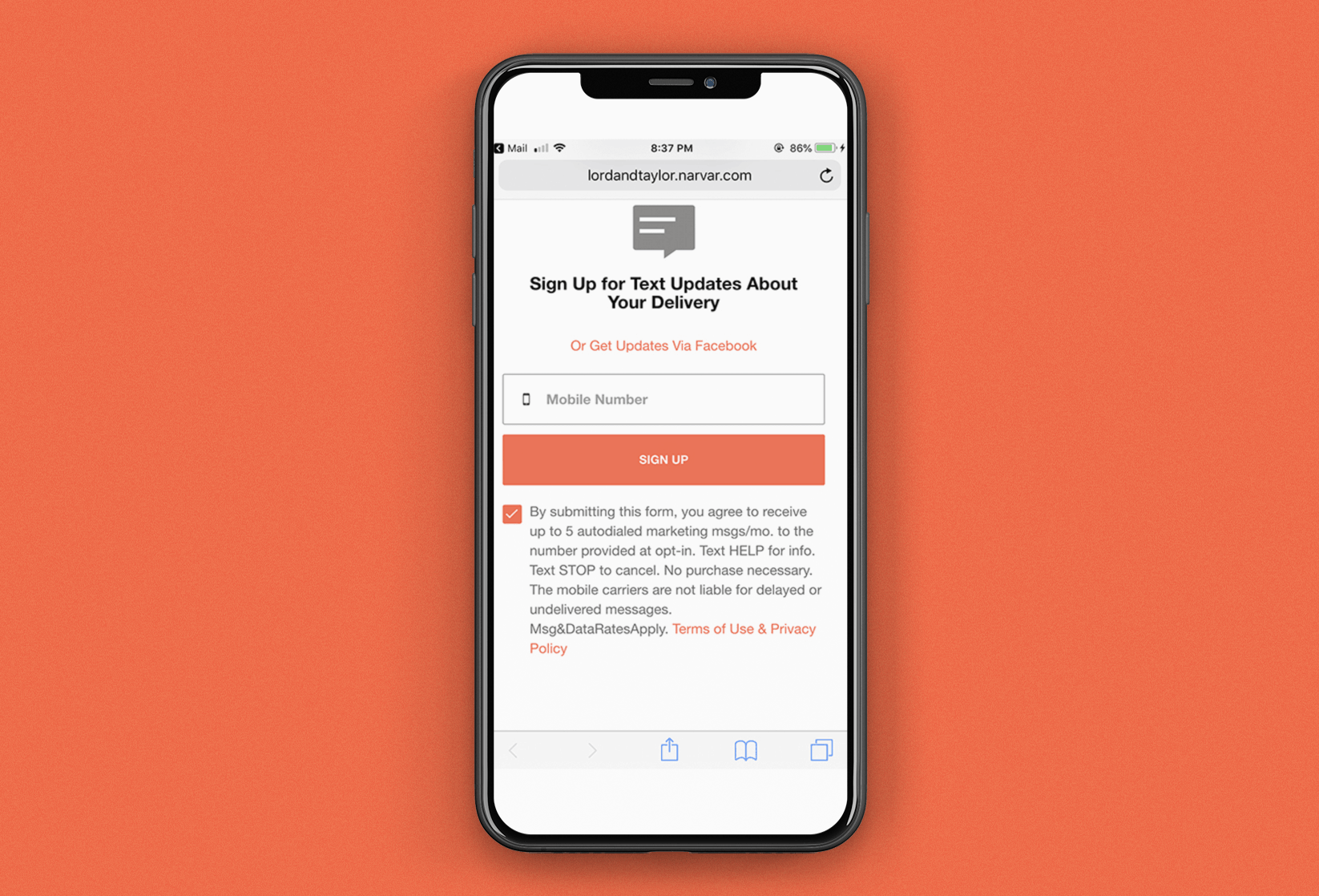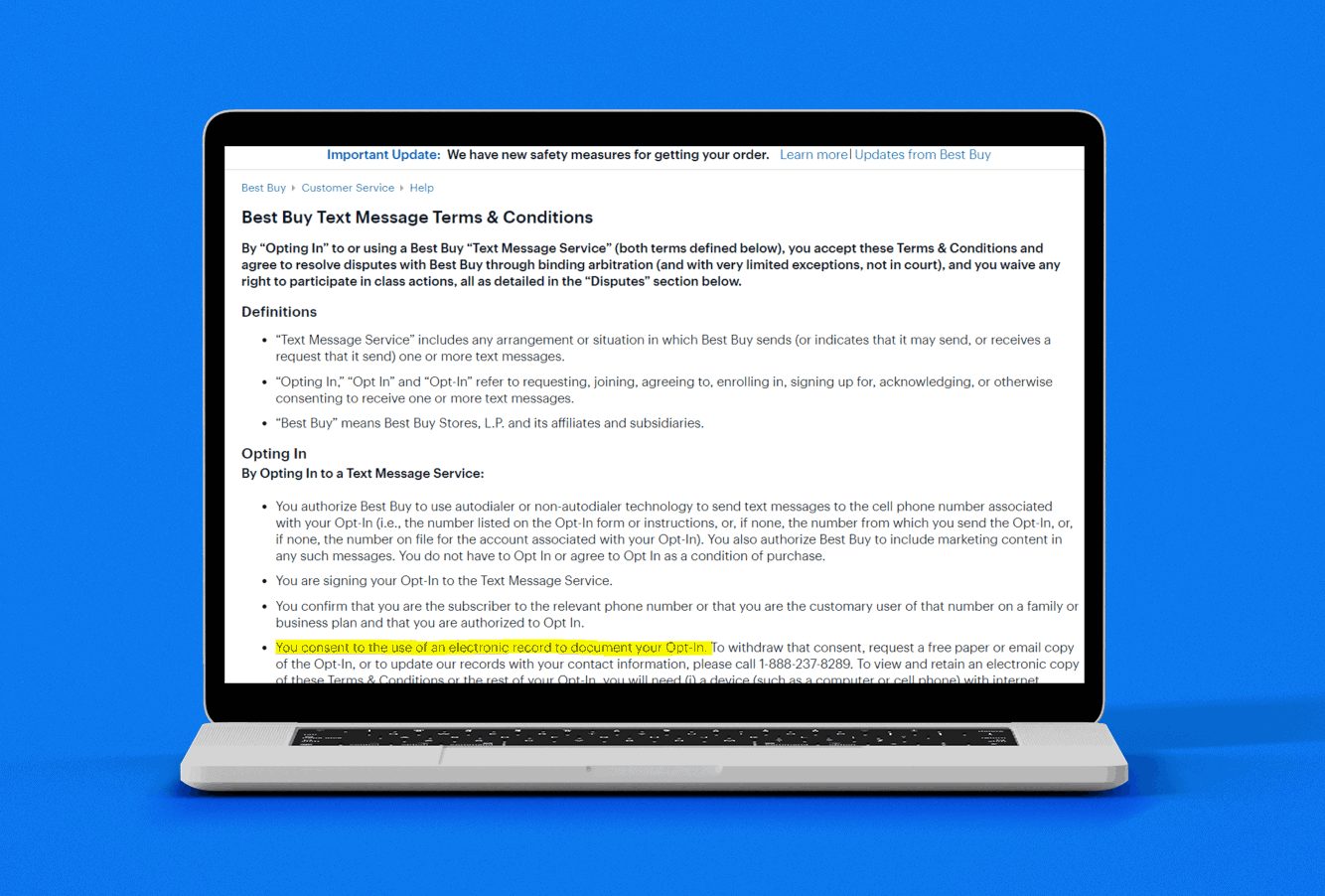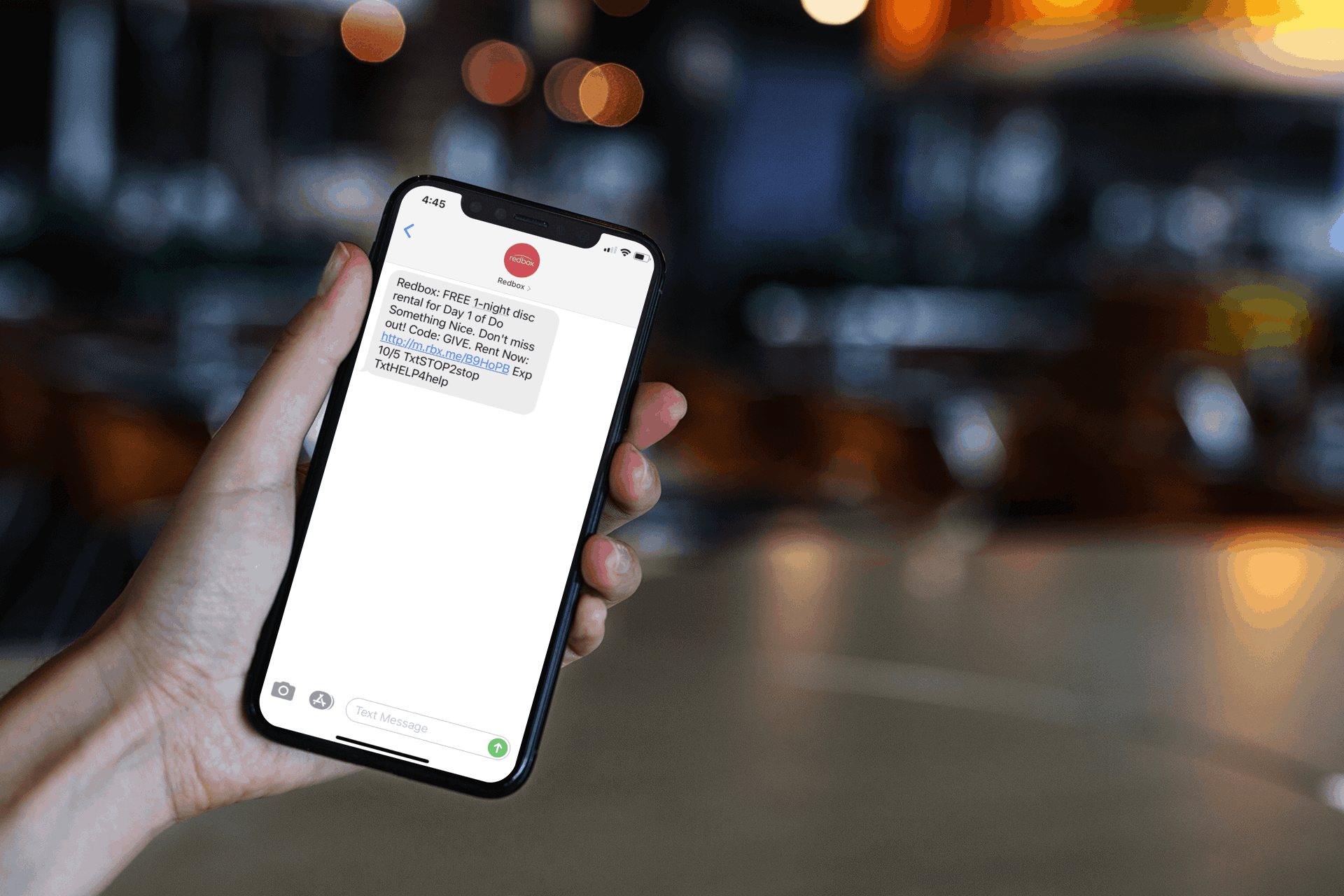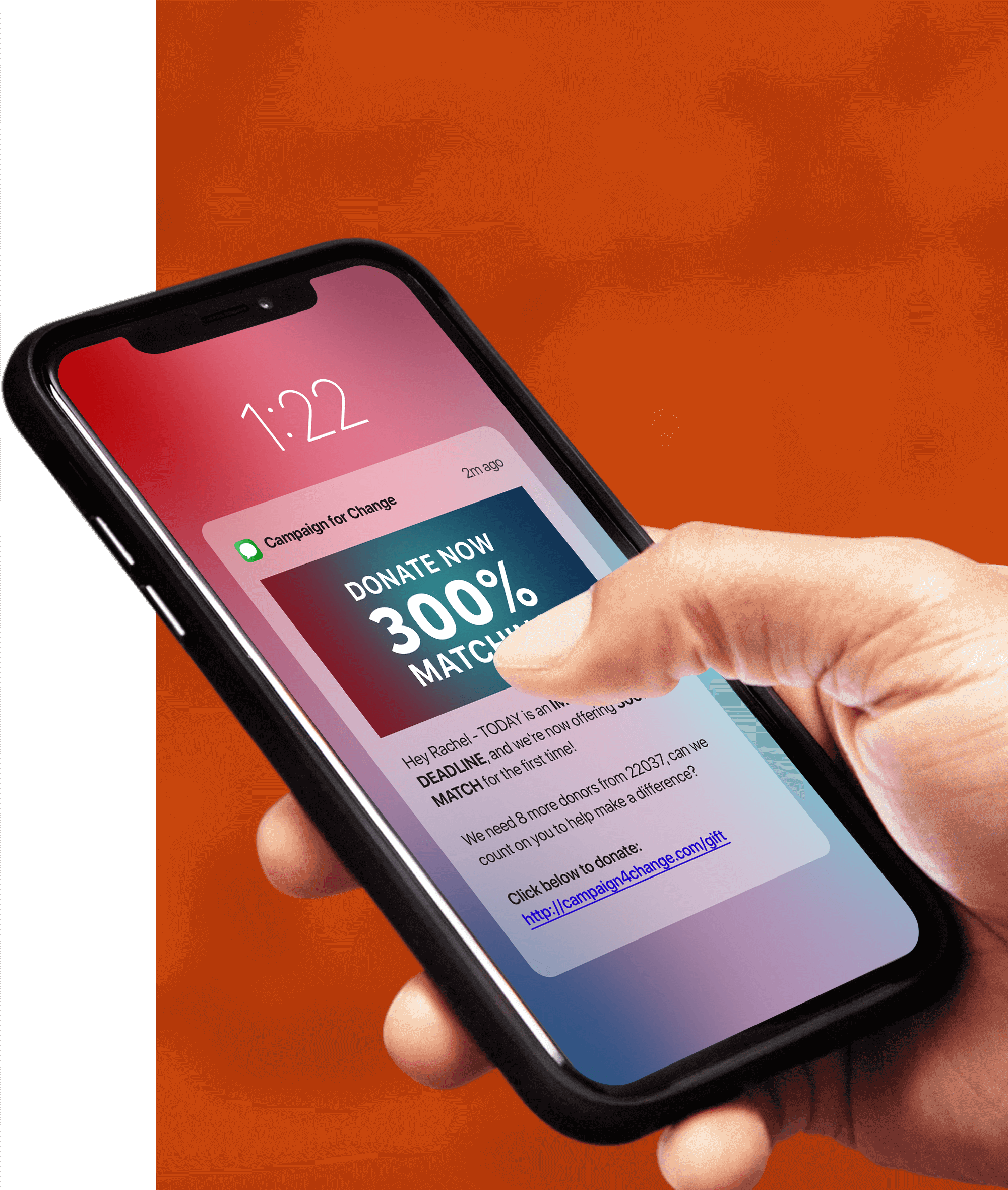
SMS marketing is a convenient and efficient way for organizations to communicate with their customers. SMS messages have a 99% open rate. If you are a marketer, you know this is mind-blowing! Email marketing, the more conventional way to marketing channel, is lucky to get a 20% open rate. It’s clear why more businesses are adding SMS messaging to their marketing strategy.
As an SMS marketing software provider, Tatango has the privilege of working with a wide range of organizations and helping them set up their first SMS marketing campaign. Those new to SMS marketing have to start from scratch, which usually means they don’t have a list of customer phone numbers yet. One of the top questions we get from our clients relates to purchasing a list of phone numbers. Customers want to know if they can buy mobile phone number lists, where they can buy them, how much they cost, and when they can start texting phone numbers from a list.
Our answer to this is always, NO! First and foremost, it’s illegal to send messages to phone numbers from a purchased list. Any ethical SMS marketing provider won’t allow their clients to use a purchased mobile phone number list in their campaign. So, if you’ve been talking with several SMS software providers, and one of them allows you to text a purchased list, we recommend you run for the hills.
In this article, we get into the details of why this practice is ill-advised and why your organization should avoid it.
Why Do Businesses Want to Buy a List of Phone Numbers?
Depending on the business and where they are in their SMS marketing journey, they may want to purchase a list for several reasons. Organizations that are new to the SMS marketing space and don’t have a single customer phone number in their database typically want to speed up the phone number acquisition processes, so buying a list may seem like a good idea. Some organizations want to buy a mobile subscriber list for the additional consumer data such a list can provide about mobile phone numbers they may already have in their database. Additional information about current subscribers can help an organization personalize SMS messages and get an even better return on their SMS marketing investment.
Can You Buy a List of Phone Numbers?
Purchasing a list of mobile phone numbers is technically not illegal. It may be a little bit shady, but the actual purchase is not illegal. However, when a client is asking about purchasing a mobile phone number list, it’s because they plan to send those people SMS messages promoting their business—and that is illegal. It’s against the law for an organization to text an individual without first obtaining consent from that individual. Even the act of texting them to obtain consent is illegal.
Sending SMS Messages Without the Recipient’s Consent
To protect consumers from spam and unwanted communication, The United States enacted a consumer protection law called the Telephone Consumer Protection Act (TCPA) that prohibits brands from sending marketing-related text messages to consumers who haven’t provided prior express written consent. When collecting phone numbers, brands should provide a written statement that clearly states the following:
- By giving their consent, the consumer authorizes the business to send text messages to their mobile phone.
- The consumer isn’t required to sign the agreement (directly or indirectly) or agree with a condition of purchasing any property, goods, or services.
- The term “signature” can include a digital or electronic form of signature, to the extent that such form of signature is recognized as a valid signature under applicable federal law or state contract law. This would include a mobile opt-in in the case of SMS marketing.
Using purchased mobile phone numbers is illegal because the business can’t provide proof of the recipients’ prior express written consent. There’s no evidence because the recipients didn’t provide it. Therefore, the recipients can sue the business and all parties involved (including the SMS marketing software provider) for violating the law and sending them unsolicited marketing-related text messages. An organization can be fined $500 to $1,500 for each unsolicited message it sends.
Let’s say your organization sends 1,000 unsolicited SMS messages, and you’re fined $500 per message. That fine, combined with legal fees, can do some serious damage to your organization. Not to mention, your business can get banned from sending SMS messages for a while. We recommend you take steps to ensure that your organization has proof of consent for every phone number you plan to send SMS messages to.
Also, keep in mind that just because you have a customer’s phone number doesn’t mean the customer has given you consent to send them automated marketing messages. Many large retailers require that customers provide a phone number for online purchases. However, unless a customer gives their consent during their online purchase to receive automated marketing messages from you in the future, you can be fined if you send them an SMS message.
How Can I Legally Text My Customers?
As mentioned previously, not only is the business that’s sending SMS messages liable for any fines, so is the SMS software provider they use. So, we’re in this together, and we at Tatango always ensure that our clients have all the information and tools they need to run their SMS marketing campaigns legally.
1. Prior Express Written Consent
To legally text your customers and meet the requirements of the TCPA, companies must receive “prior express written consent” from customers before they can legally send those customers any marketing text messages. To be compliant, you must include the following items when asking for consent:
- When asking a consumer to participate in your SMS marketing program (either through a web opt-in form, at point of sale, on a mobile device, or even with pen and paper), you must include the following statement: “By participating, you consent to receive text messages sent by an automatic telephone dialing system.”
- This “automated telephone dialing system” disclosure must be made “clear and conspicuous” to the subscriber before they opt into your SMS campaign. All you need to do is display the “automated telephone dialing system” disclosure close to wherever you’re asking your customers to enter their mobile numbers. Display that disclosure right in front of the consumer by tying it to the initial participation SMS communication request, as shown below.
Example #1: “By submitting this form, you agree to receive up to 5 auto-dialed marketing msgs/mo.”

Example #2: “You consent to the use of an electronic record to document your opt-in.”

2. Consent Is Not a Condition of Purchase
Another important disclosure required by the TCPA is that “consent is not a condition of purchase.” This means the consumer wasn’t forced to give their consent and mobile number to make a purchase. It also means the consumer doesn’t need to make a purchase to join your subscriber list.
The best way to ensure your business is compliant with this requirement is to add a short statement that says, “Consent is not a condition of purchase.” See the example below.

CTIA SMS Marketing Requirements
The CTIA is an acronym for the Cellular Telecommunications Industry Association. The CTIA was established in 1984 as a nonprofit trade organization that represents wireless carriers and oversees short codes. They’re kind of a big deal, and if your organization doesn’t follow their guidelines, the wireless carriers can suspend you from sending messages. The CTIA requires the following opt-in and opt-out information:
Requirements upon opt-in:
-
- Program name or description
- How to opt out, sent at least once a month (“txt STOP 2 end”)
- How to find more information (“text HELP for help”)
- Recurring-messages disclosure (“3 msgs/mo”)
- “Message and data rates may apply” disclosure
Example #1:

A program must respond to these opt-out requirements:
- Stop
- End
- Cancel
- Unsubscribe
- Quit
Example #2

Let’s Chat
We hope all this compliance talk didn’t scare you away! As we mentioned earlier, we’re in this together. Our company helps brands successfully send SMS messages, and compliance is one of our key priorities. If you have questions about compliance or any other SMS marketing topics, we’d love to chat with you. Contact us now to talk to an SMS marketing expert.

